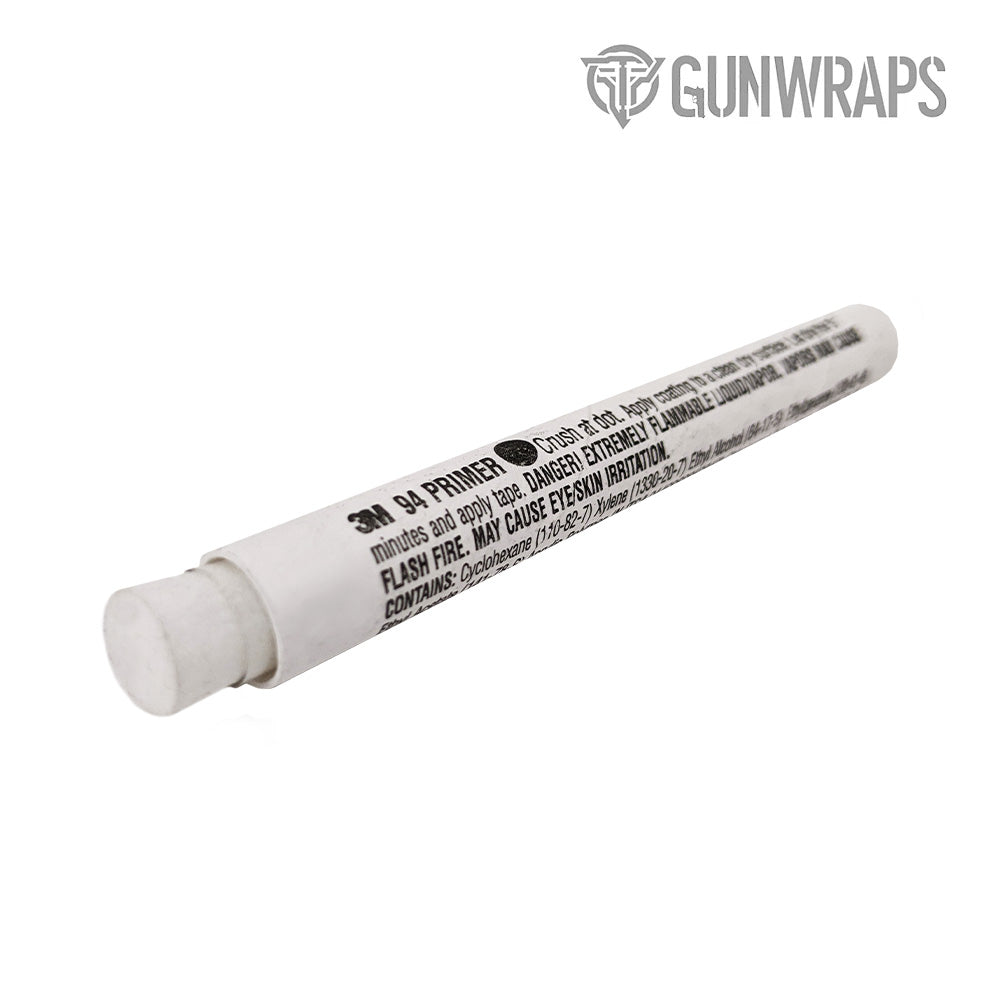While duck hunting can be thrilling, it's challenging. From unexpected setbacks to the frustration of not spotting any birds, it's easy to question your choice of pastime. That's where GunWraps comes in. With their expertise, we'll delve into common duck hunting issues and the practical solutions they offer.

Issue: No Ducks Seen
To duck hunters, this is the most annoying problem. All setup, but not a duck to be seen. For those new to hunting, this problem is quite common. Check out these hunting tips for beginners. What we propose is as follows:
- Select Your Days: Only some days make for a successful hunting trip. Sometimes, especially during a warmup, birds don't move. Acknowledge both your happy and terrible days. Picking the optimum days to hunt can be accomplished by observing weather patterns and knowing how birds behave in various situations.
- Select Your Days: As the season progresses, ducks avoid more significant, more frequented waters, opting for smaller creeks and backwater lakes. This shift in their behavior necessitates a change in our approach. Adapting to these changes can increase our chances of a successful hunt.
- Scout covertly: When scouting, stay away from frightening birds. To avoid driving them away before you even have an opportunity to hunt, move gently and silently. To see far away, use binoculars; reduce noise, stroll, and avoid abrupt movements.
- Scout More: There may occasionally be no birds where you are. Give yourself extra time to scout to determine where they are gathered. When birds are more active, scouting works best in the early morning and late afternoon.
- Please read the location: Bird behavior can reveal a lot. If they are circling and eventually landing, they are probably temporarily feasting or roosting there. The place is more permanent if they are dive-bombing. Knowing these habits will enable you to position yourself for a fruitful hunt.
Issue: Ducks Not Reacting to Decoys
It can be depressing to see ducks but not get them to land. Decoys are very important; here are some pointers:
- Mix Up Your Spread: Seeing the same arrangements becomes second nature for birds. To attract and realistically represent your spread to approaching ducks, provide variety.
- Strategic Placement: Place decoys where you want ducks to avoid landing and hunt the places they like. For instance, set up decoys in the center to hunt the perimeter of flooded maize. Natural landing zones made this way can draw birds to your shooting location.
- Add Movement: Movement gives your decoy spread a lifelike quality. A jerk rig can be effective yet understated, mainly when other movement decoys are overdone. Additionally, battery-operated or wind-activated decoys give your spread genuine movement.
Issue: Ducks Circling But Not Landing
It might be aggravating to see ducks circle your decoy spread without landing. These are some fixes:
- Give Them Room: Birds occasionally need additional room to land. To create a landing zone, reduce or reorganize the decoys. Ensure your spread provides the clear, open space ducks need to land safely.
- Set Up for Crossing Shots: Position decoys such that they are hidden from view rather than directly in front of your blind. This method lets you benefit from the birds' innate flight routes.
- Boost Your Cover: Move to a better-hidden spot or add a natural brush to your blind. Ducks have keen vision and can detect even minute movements, so good concealment is essential.
- Be Quiet. Silence is essential when birds are nearby. Avoid using duck calls too often and limit your interactions. Ducks are highly noise-sensitive; even a little sound can startle them.
Issue: The Ducks Landing Too Far Away
Ducks landing just out of shot range annoys me. GunWraps suggests:
- Get Ducks Out of There: Startle ducks away immediately if they land too close. New ducks usually land where they observe other ducks. Flush them out with a dog or a boat, then reset the area for new arrivals.
- Shift Your Spread: Move Your Spread: To ensure birds land nearer your blind, change your decoy spread to consider wind direction. Put your spread where ducks like to land—into the wind.
- Split Up Your Groups: To bring ducks into shot range, divide your groups into larger ones farther away and smaller ones closer to your blind. This arrangement can create a more welcoming and natural spread.
Issue: Missing Easy Shots
When everything else goes well, missing simple shots is the worst. Here is the remedy:
- Pattern Your Gun: See how your shotgun fires at the range. Aim according to the pattern. Knowing your gear is critical because shotguns and ammunition might have different patterns.
- Practice: Training at a gun range can significantly improve your duck hunting skills. Learn more about the benefits of training at a gun range. Spending time at a five-stand course or shooting clays can significantly enhance your accuracy and reaction time. GunWraps encourages frequent practice to build muscle memory and increase your chances of a successful hunt.
Practicing how to shoot clay pigeons can also help improve your accuracy and reaction time in the field.

Issue: Lack of Preparation
- Check Your Gear: Being unprepared can lead to many issues during your hunting expedition. However, with thorough preparation, you can ensure a smooth and successful hunt. Here's how to ready yourself:
- Know the Area: Before leaving, check all of your gear. Ensure your decoys are in good shape, your pistol is clean and working, and you have extra ammunition. In the field, little problems might grow into major ones.
- Know the Area: Get to know the hunting region. Find the ideal places where birds will likely be seen and any possible risks. With this information, your chances of a successful hunt will increase, and you will save time.
- Weather Awareness: Abrupt weather changes can impact your safety and the behavior of birds. Prepare for any weather and dress appropriately.
Issue: Not Concealing Yourself Well Enough
Ducks have remarkable vision and can detect even the tiniest movement or strange objects. They won't approach if they see you. Boost your invisibility with these tips:
- Blend into the Environment: To hide your blind, use reeds, grass, and branches. Make sure it blends in with the surroundings. Avoid using materials that seem out of place.
- Wear Camouflage: Invest in premium camouflage apparel that complements the surroundings where you hunt. Consider using the best hunting camo skins to blend into your environment more effectively. Your face and hands should be covered, as they are often the most noticeable areas.
- Use GunWraps: GunWraps offers customizable camouflage wraps for your firearm, helping it blend seamlessly into your surroundings. This can make a significant difference in staying concealed from sharp-eyed ducks.
- Minimize Movement: Ducks are highly perceptive of movement. When birds are close, especially, remain as motionless as you can. Move only when essential, and then move thoughtfully and gently.
- Use Natural Cover: To hide oneself, use tall grass, trees, or bushes wherever possible. You can further help break up your silhouette by placing your blind or conceal in a natural dip.
- Adjust for Changing Conditions: Adjust your concealing strategies to account for light, wind, and vegetation variations as the season progresses.

Issue: Misreading Duck Behavior
An effective hunt requires an understanding of duck behavior. Opportunities may be lost if one misreads what they do. This is how to read their actions more accurately:
- Learn the Signs: Comfortable, cautious, or afraid, ducks display particular behaviors. Pick up these clues. Calm ducks will, for instance, swim quietly and preen, but frightened ducks may bob their heads or take off.
- Recognize Feeding Patterns: Ducks have set feeding times and locations. Acknowledging these trends will enable you to situate yourself at the appropriate moment.
- Acknowledge Flight Patterns: Watch how ducks come to your decoys. They can be circling or flaring off all the time, which could mean something is amiss with your setup.
- Adapt to Their Reactions: If ducks routinely avoid your spread, be prepared to make fast changes. This can include shifting your calling style, adjusting your decoy spread, or repositioning your blind.
Issue: Using the Wrong Calls
Bird attraction depends on duck calls, but improper use might be more detrimental than beneficial. Here's how to make duck calls work:
- Know When to Call: It matters. Make calls sparingly and just when ducks are close by. If they have been intensively hunted, over-calling might drive birds away.
- Use the Right Call: Different calls work well in different circumstances. Discover the fundamental calls—the return call, welcoming call, and feeding chuckle—and know when to use each.
- Practice Your Technique: Bad calls can drive ducks away. Regular practice will ensure that your calls sound realistic. Consider using recordings of actual ducks to compare your calls and improve your approach.
- Reading Ducks: Look at the way ducks answer your calls. If they're not responding or flaring off, make a calling adjustment. Simplicity is sometimes preferable, and it can be wise to say nothing.
Issue: Not Adjusting for Weather Conditions
Duck hunting is mainly weather-related. Refraining from adapting to various weather situations can lower your chances of success. This is how to adjust:
- Wind: Ducks want to land in the wind. Using this innate tendency, place your blind and decoy spread appropriately.
- Rain: Ducks move more in moderate rain but may huddle down in heavy rain. Arrange your hunts to follow these trends and change your strategy according to the amount of rain falling.
- Cold: Cold fronts may force new ducks into your area. Hunt hard during these times since new birds are less cautious. Ensure your gear and clothes are appropriate for the cold so you can remain comfortable and concentrated.
- Fog: Hunting in fog might be difficult because there's less light. Put up places where ducks are likely to travel in hazy circumstances, and use calls more often to help them find your spread.
Issue: Inadequate Decoy Maintenance
Hunts are only successful when decoys are kept up. Inadequately kept decoys may discourage rather than draw ducks. Here's how to maintain excellent decoy condition:
- Keep Decoys Clean: Decoys can appear strange if muck, algae, and other detritus build up. To keep your decoys looking lifelike, clean them often.
- Mend Damage: Look for holes, cracks, or missing pieces on your decoys. Repair or replace damaged decoys to keep them working.
- Store Properly: When not in use, keep your decoys in an excellent, dry location to avoid damage from heat, moisture, and UV rays. Use decoy bags for protection during shipping and storage.
- Refresh Paint: Decoy paint may chip or fade with time. To keep them looking lifelike, apply premium, waterproof paint meant for decoys.
Understanding these typical problems and implementing these fixes can increase your odds of a successful duck hunt and improve your hunting experience. Recall that the secrets of conquering the difficulties of duck hunting are planning, tolerance, and flexibility.


























